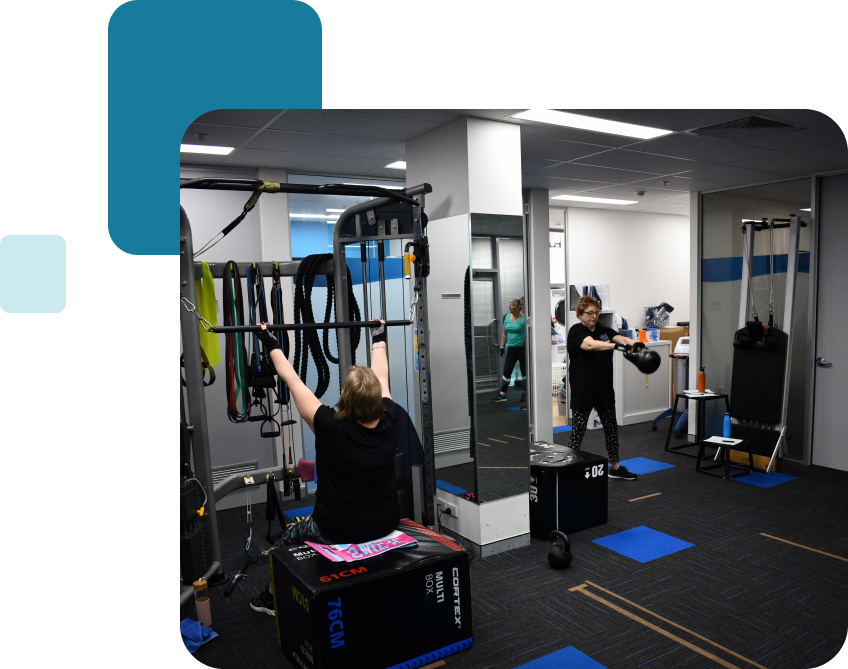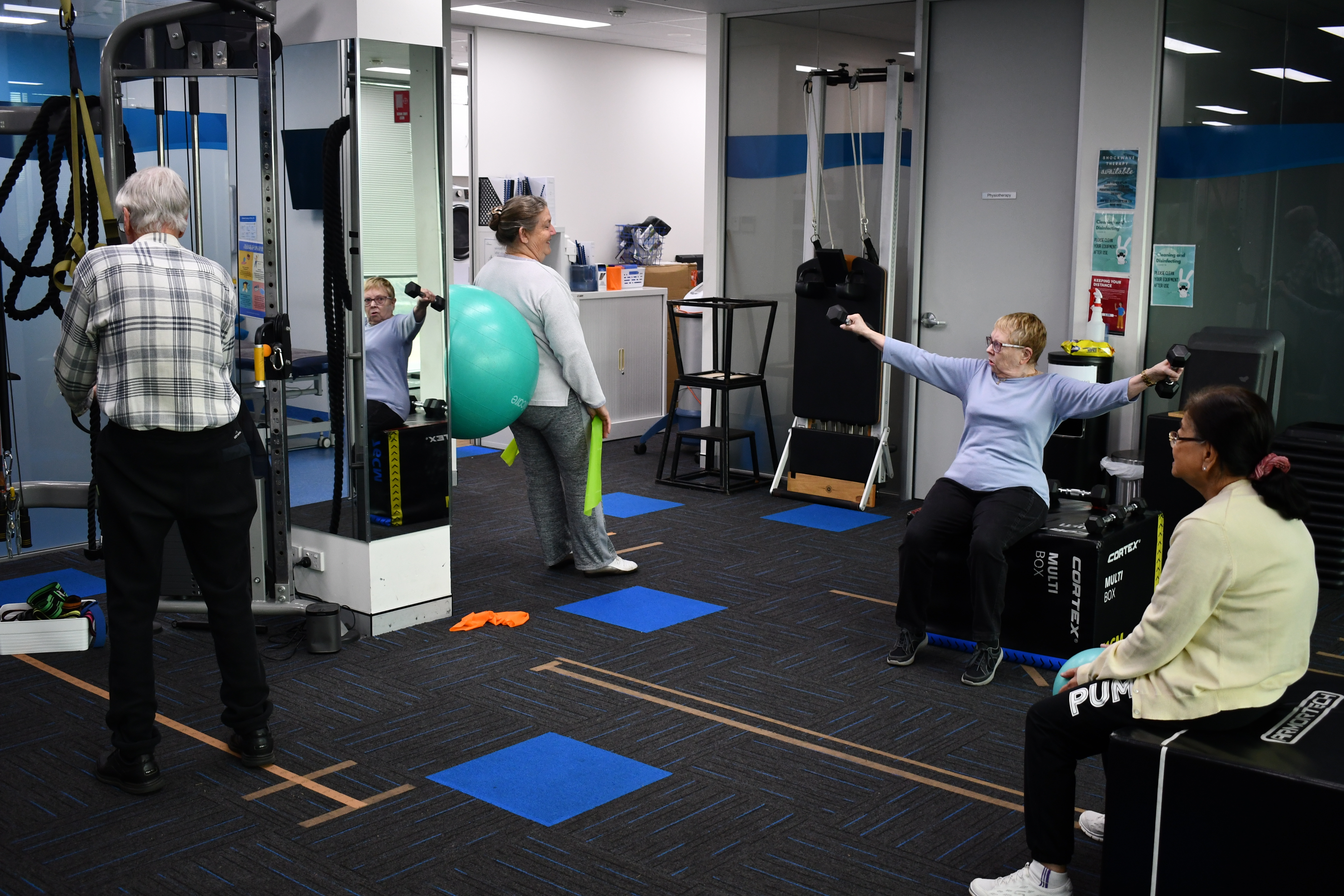Structured osteoporosis exercise classes in Murdoch and Canning Vale led by qualified health professionals at WA Health Group.
.png)
Support for Safe and Active Living with Osteoporosis
Staying active is important for maintaining bone and muscle health at any age. At WA Health Group, our Osteoporosis Exercise Programs in Murdoch and Canning Vale are designed to support safe movement, improve confidence, and encourage independence.
Led by Accredited Exercise Physiologists, these small-group sessions focus on evidence-based exercises tailored to your ability and health needs. Each session is supervised to promote correct technique and gradual progress in a safe environment.
Meet the exercise physiologists who deliver our osteoporosis programs and learn how they can support your activity goals.
Is our program right for you?
Safe and Supported Exercise
Each session is designed with your safety in mind. Our exercise physiologists tailor programs to your health history and closely monitor movement to support bone and joint protection.
Suitable for All Fitness Levels
You don’t need prior exercise experience to begin. Programs start at an appropriate level for your ability, with gradual progression based on comfort and capacity.
Consideration for Previous Injuries or Fractures
If you’ve experienced fractures or persistent pain, your program will be modified to reduce strain on affected areas while maintaining safe, guided activity.


Why does our Osteoporosis exercise program stand out in Perth?
-
Evidence-based approach: Sessions include safe, weight-bearing and strength exercises designed to support bone and muscle health.
-
Led by Accredited Exercise Physiologists: Our team has experience working with people managing osteoporosis and related conditions.
-
Small group setting: Classes typically include 5–8 participants, allowing for close supervision and individual guidance.
-
Individual assessment: Each participant begins with a personalised review to ensure exercises are suitable for their health and ability.
-
Balance and coordination training: Sessions incorporate exercises aimed at improving stability and movement confidence.
-
Supportive environment: Clear instruction and a gentle pace make the program suitable for beginners and those returning to exercise.
-
Funding options: NDIS and private health rebates may apply, depending on your eligibility and provider coverage.
What Types of Exercises Are Included?
Programs typically include a combination of:
-
Weight-bearing movements to promote bone and muscle activity
-
Strength exercises tailored to individual ability and comfort
-
Balance and posture activities to support coordination and stability
-
Gentle mobility work to maintain joint and muscle function
All exercises are supervised by an Accredited Exercise Physiologist and adjusted to suit your health status and goals.
-1.jpg)
Osteoporosis exercise classes packs
Single class and packs available
EASY GAP ONLY PAYMENTS
We accept 100% of Australian Private Health Insurance Providers
We’ll handle your private health insurance claim through HICAPS, so you just pay the gap. Not sure what’s covered? Our team can help or you can check with your insurer.

Frequently Asked Questions on Bone Density & Osteoporosis Care
Is it safe to exercise with osteoporosis?
Exercise can be beneficial for people with osteoporosis when performed under professional supervision. Our programs include controlled, weight-bearing, and balance-based exercises that are tailored to your ability and medical needs.
Who leads the sessions?
All sessions are conducted by Accredited Exercise Physiologists experienced in supporting people with osteoporosis and related conditions. Exercises are adjusted to your comfort level and performed in a supervised setting.
Do I need a referral from my doctor?
A referral is not required to attend. However, if you have complex health conditions or recent fractures, we may request relevant medical information to help tailor the program safely.
What if I’ve had a fracture before?
Your exercise physiologist will review your history and modify your program to reduce stress on affected areas while maintaining safe participation.
Can I join if I haven’t exercised in a long time?
Yes. Programs are designed for a range of fitness levels, and exercises progress gradually based on your ability and comfort.
How many people are in each class?
Classes generally include 5–8 participants to allow close supervision and individual support.
Where are the classes held?
Osteoporosis Exercise Programs are available at WA Health Group’s Murdoch and Canning Vale clinics.
How long is each session?
Sessions run for approximately 45 minutes, including warm-up and cool-down activities.
What should I bring?
Wear comfortable clothing, supportive shoes, and bring a water bottle. All exercise equipment is provided.
Is the program claimable through private health or NDIS?
Private health insurance rebates and NDIS funding may be available, depending on your individual policy and eligibility.
What if I feel unwell during a session?
If you feel unwell or uncomfortable at any time, inform your exercise physiologist immediately. Your session will be adjusted or paused as needed.




